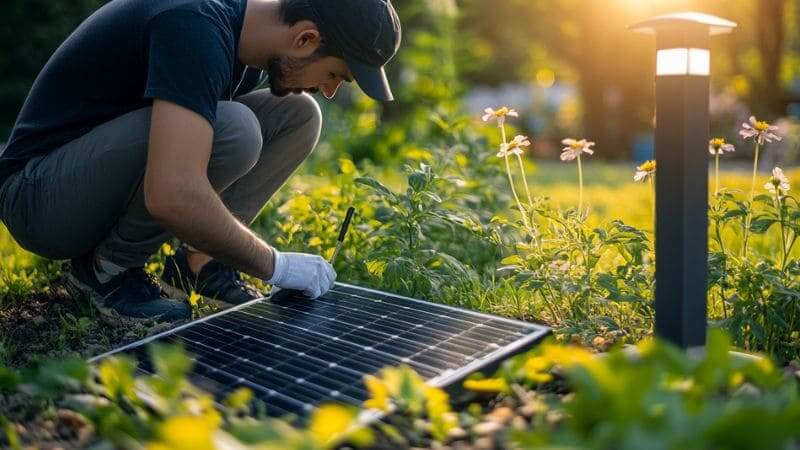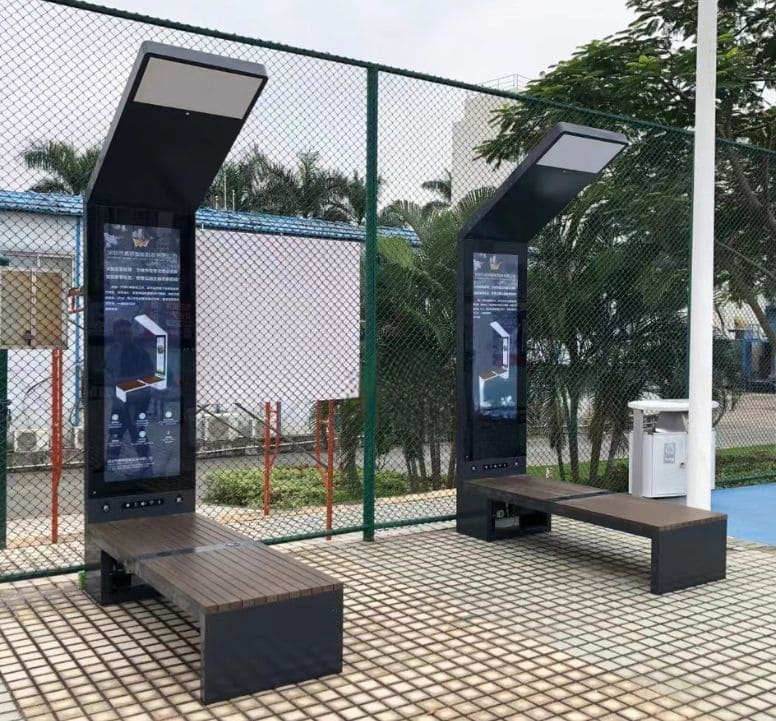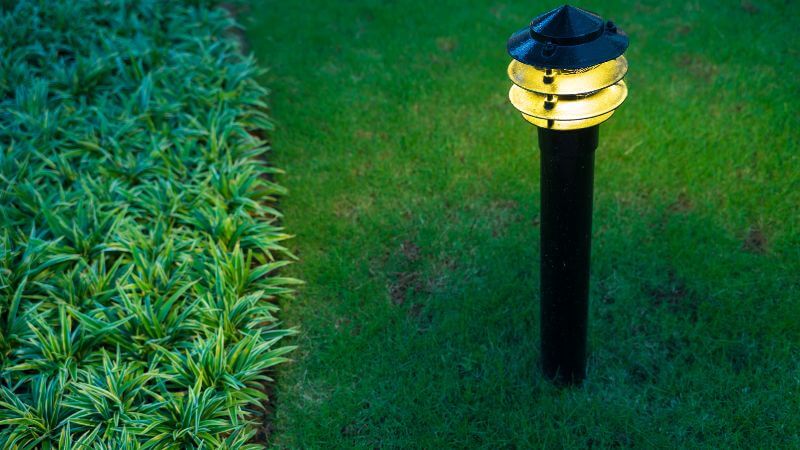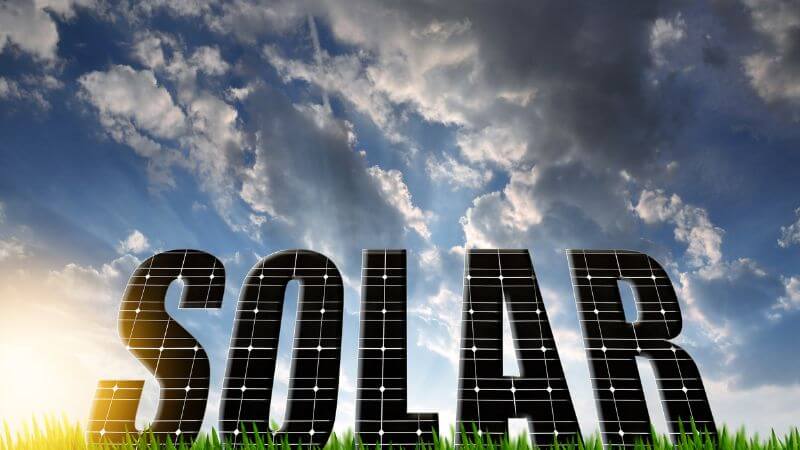Dirty solar panels can drastically reduce their efficiency, meaning less energy production and higher energy costs. If left uncleaned, accumulated dirt, dust, and debris can permanently damage your panels, leading to costly repairs or replacements. Regular cleaning is essential to maintain optimal performance. Let’s explore how to effectively clear solar panels and keep them in top condition.
The tip for solar panel cleaning is simple – just brush off the dirt that can be easily removed, gently scrub with soapy water, and then rinse well using clean water. Maintaining your solar array can increase the amount of energy that you get from it and help to make sure that they last as long as possible.
Do you want to know the perfect ways and instruments? Come with us and we will get into the weeds about what your panels can do to reach that peak!
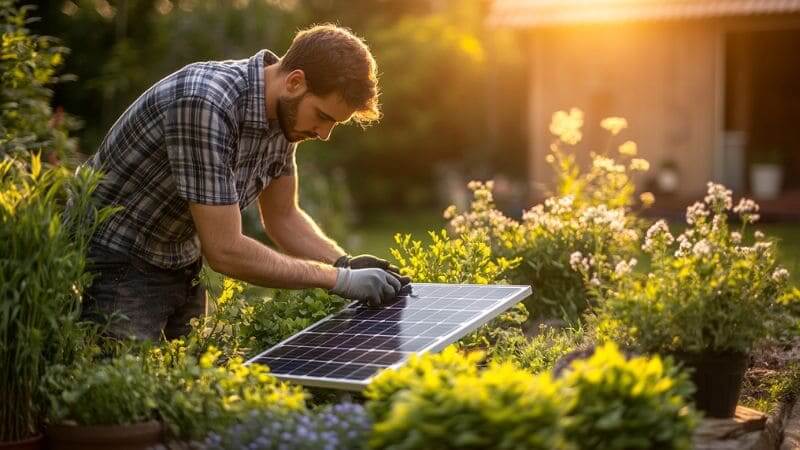
Why Is It Important to Clean Solar Panels?
Solar outdoor lights are an ideal addition to your outdoor space, but you must keep them clean in order make the most of their benefits. This causes dirt, dust and grime to start sticking on the surface of your photovoltaic panel thus obstructing sunlight from reaching it which means less energy being captured by your Panel. Normally that can reduce the energy output drastically and i some cases it might even not work anymore.
How Dirt Affects Solar Panel Performance
Solar yard lights are an ideal addition to your outdoor space, but you must keep them clean in order make the most of their benefits. This causes dirt, dust and grime to start sticking on the surface of your solar panel thus obstructing sunlight from reaching it which means less energy being captured by your Panel. Normally that can reduce the energy output drastically and i some cases it might even not work anymore.
Loss in Power Generation
A small dust particle layer can result to 20% or more power loss from the panel. It blocks the sunlight (and therefore restricts energy storage) and will reduce how long your solar-powered lights can operate!
Damage Could Be Permanent
Over time, all the dirt accumulating on your panels can cause them to degrade and corrode — eventually creating “hotspots” that will burn holes in solar cells permanently.
Environmental Influences
Simple reasons being bird poop, pollen, tree sap and pollution. This does not just lead to the efficiency of photovoltaic panels dropping but also forms tough dirt that acetone and methylated spirit cannot remove.
Benefits of Regular Cleaning
Maximised energy production
If your solar garden lights are clean, it allows the photovoltaic cells on them to take in sunlight better making this enhance its energy efficiency and let you enjoy brighter lighting at night.
Savings
Routine cleaning can prevent dirt and damage that require repairs or replacements.
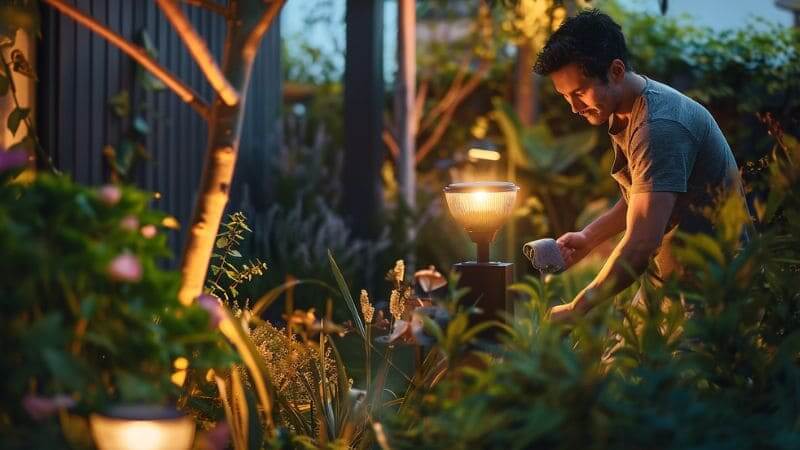
How to Prepare for Cleaning Solar Panels On Garden Lights?
Preparing to clean solar panels is a critical step to ensure the safety and effectiveness of the cleaning process. Solar panels are an important component of the production and conversion of sunlight into solar energy; however, they become less efficient dirtier. The dirt, dust, leaves or bird droppings that can be drop on the panel from rain and wind will obstruct a part of sunlight to excite solar cells.
So, before you start cleaning the surfaces of your beautiful home there are some basic tips to remember as — Keep in mind … You might need right tool… Making sure its safe Cleaning Planning for clean without damaging them.
Necessary Tools and Materials
To clean the panels properly and safely, you need the right tools. Applying the wrong types of materails may scratch your panels or even cause them to have shorter life spans. Here are the essential tools and materials:
Water Hose
The water hose is used to remove loosened dirt and debris. However, you will want to avoid using high-pressure nozzles as they can break the panels. Instead, go for a soft spray setting to remove any dirt without damage.
Soft Brush or Toothbrush
Scrubbing the photovoltaic panel with a soft brush, you can also use toothbrush to do so. The bristles must be soft to avoid scratching the surface but hard enough for deep cleaning dirt. A brush is especially handy when cleaning the edges or hard to get rid of dirt.
Mild Detergent or Dish Soap
Select a mild detergent or dish soap, harsh chemicals can damage the protective coating on the panels, so you have to steer clear of them. Soap and water are often enough to clean most things.
Apply Clear Coat Spray
After the panel has been cleaned, you can also apply a clear coat spray to protect its surface from future dirt build-up. This layer also acts as a first defense against the elements which will cut down how often you end up cleaning your panels.
Clean Cloth or Towel
After you rinse the panels, use a clean soft cloth to dry them. Ensure the cloth is free of any dust particles to prevent surface damage as it dries. Microfiber towels are good for this purpose as they are soft and absorbent.
The right materials help you clean the solar panels and avoid any inadvertent harm. Also, if the operations are of solar yard lights or some outdoor area then having proper tools will provide easier and manageable work.
Safety Precautions
When cleaning photovoltaic panels, safety should always be the top priority — especially if they are high up on a roof or in another difficult place to reach. Solar garden lights use the energy from sunlight to power an extremely low voltage LED light by means of solar panels. Although generally at a minimum in most small systems, there is still a risk when dealing with electrical components. Here are the key safety precautions to follow:
Turn Off the Solar System
Before starting, the first thing to turn off the solar system. Although photovoltaic panels are safe by design, they still have an electrical nature in their essence. Disconnecting all-electric connections can protect you from electric shock as a whole while cleaning.
Be Safe on High Areas
Avoid falling, if your panels are placed at height such as roofing. Take the time to use a good solid ladder, and if needed wear proper anchoring harness. Insure that ladder is stable & on a level ground. Receiving assistance like this can increase your safety too.
No Harsh Chemicals
When cleaning the panels, it is crucial to not use rough chemicals or cleaners separated from a hillstream of tools. This type of cleaner (above 9 in pH) is a high alkaline that will destroy protective coatings on the solar cells and lead to power loss, if not directly cause complete breakdown. Prefer detergents with mild characteristics or a laundry soap of pH less than 9.0 always in such cases.
Be Careful with High-Pressure Water
In addition, high-pressure sprays can be dangerous to solar panels even if washing with water is fine. Keep gentle spray, making sure you clean out all debris without messing with how strong your siding is.
Check the Weather
The best time to clean panels is in moderate, mild weather. In hot summer days cleaning must be avoided because heat will evaporate the water leaving soap scums behind. You should clean the solar panels during overcast skies or first thing in at the break of dawn because this is when they are going to be cool and easier to work with.
Watch Out for Slippery Spots
When working on a roof, watch out for slippery spots created by the water that you use when cleaning. Pat dry or wear suitable footwear to prevent slip accidents.
By gathering with the right tools and take these safety precautions to get a better experience of cleaning your solar panel or even those solar led lights, in order to maximize how efficient a solar energy system will be.
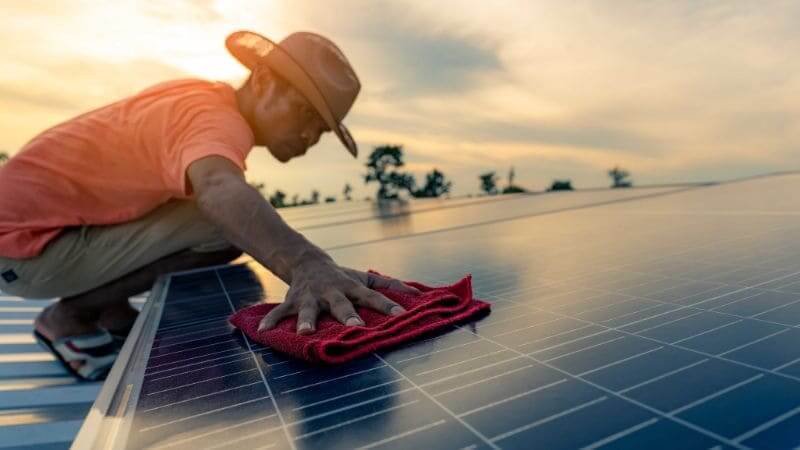
How to Clean Solar Panels: A Step-by-Step Process
It’s important to regularly clean them so they remain efficient in capturing as much sunlight. Dust and dirt can hamper sunlight penetration thus reducing the effectiveness of solar panels, hence it is very important to clean them properly in order not to create damage. We made a simple guide to help you clear your solar lights or panels, safely and effectively.
Remove Loose Debris
You can clean your carport solar panels yourself by first getting rid of any loose elements like leaves, dust or even bird droppings on top. Dirt can easily be removed with a soft brush or towel, without scratching the surface. Do not use abrasive or sharp objects- it can damage the solar cells. This initial step will stop junk from being rubbed throughout the panel once washing that might cause scratches.
Spray Panels with Water
Rinse the panels gently with a water hose to remove as much of the dirt loosen by your initial wash. Be sure you have the water pressure low to prevent damage solar cells. All you have to do is spray down your vinyl lattice with a garden hose and any loose dirt, dust or other random crap will fall right off without having bust out another cleaning item. Do not try to wash the panel with a high-pressure washer because this may cause cracking or break on its surface.
Scrub Problem Areas
For stubborn dirt (like dry bird droppings or sap) use a soft brush, soft brush with water and mild soap solution. Scour these sections lightly to loosen the dirt. Do not use abrasive chemicals or standard cleaning agents as they can be harmful and wear down the protective layer of grease. Use only soap and water as other cleaning chemicals would eventually destroy the solar cells.
Clean Products (Optional)
And for very dirty panels you can use a special cleaning solution with pH below 9. Use that cleaner on the trouble areas, and wipe it clean with a damp rag. Make sure to rinse off completely otherwise there will be residue.
Rinse and Dry
Use clean water to wash away all soaps and cleaning agent off the panels. Use a dry cloth or towel to wipe the panels gently, ensuring they are free from water spots or streaks that can block sunlight.
Apply a Clear Coat
For added protection against future dust, a clear coat can be used to cover the panels. This adds a protective layer to the panel for future cleanings and assists in keeping the efficiency of your adhesion panels.
Monitor Solar Output
Also, Keep an eye on the solar output after cleaning to confirm that your panels are working at their best unfettered by dirt. You will hopefully see your solar yard lights shining brighter next time after you have read this.
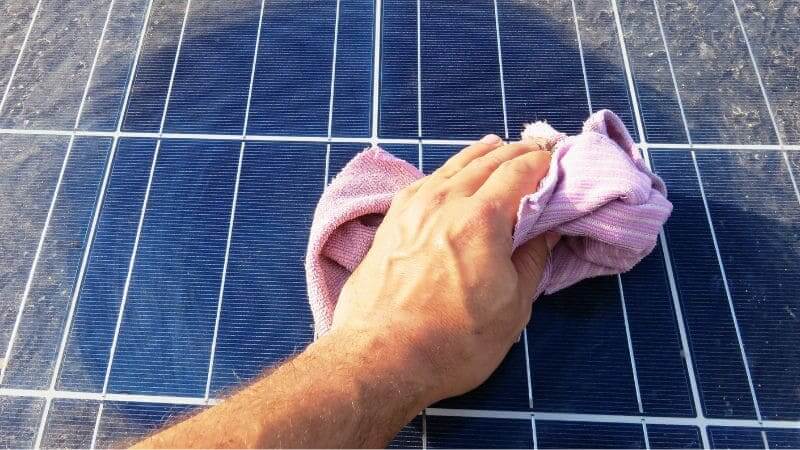
How to Clean Specific Types of Solar Lights?
Solar lights just like any other lighting fixture need to be cleaned properly, otherwise you risk damaging it. No matter if your solar lights are plastic, or with this type of outdoor and you have solar panels for lighting outdoors, it is important to take into account the best way to perform cleaning so they do not end up damaging them. Here are some other helpful tips for cleaning the various types of solar lights you might encounter.
How to Whiten Oxidized Yellowed Plastic Damaged By The Sun Solar Light?
Covered by plastic for a long period, and exposed to sunlight or other weathering conditions could cause the solar lights covers became yellowish — haze film. This discoloration may reduce the amount of light energy emitted which in turn lowers efficiency at utilizing solar radiation to power itself up.
With a Soft Brush
Gently scour the plastic covers with a soft brush to remove any loose dirt or stained that has built up. Avoid using a hard brush, as this can scratch the plastic.
Use Toothpaste
Another excellent way to save tired and yellowed plastic is toothpaste. Then you can rub a tiny bit of toothpaste on the plastic surface with some damp cloth or sponge. And toothpaste just needs a little bit of abrasion to it so the mild abrasiveness in your toothpaste also helps remove oxidation and light scratches.
Rinse and Dry
After scrubbing, rinse the lights with clean water then use a microfiber rag or towel to dry them off. This way you can avoid getting water spots and further reducing the light admitted.
Optional
Clear Coat to prevent the plastic cover from oxidizing again, you can spray a tihin layer of clear coat on it. This provides a barrier and prevents your solar lights from getting dirty for longer periods.
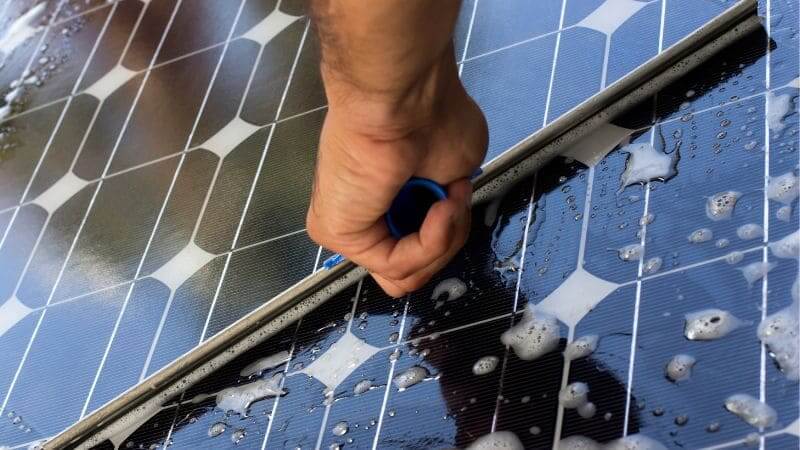
How to Clear Your Solar Lights?
Outdoor solar-powered lights usually have small panels on the top that require periodic cleaning and light capture. Here’s how to clean them:
Wipe Off Loose Debris
Use a soft cloth or towel to gently clean the panel’s surface, removing dust, leaves, or bird droppings.
Spray with Water
Use a gentle spray of water to wash away any dirt. Be cautious not to use high-pressure water, as it may damage the panel or light casing.
Mild Soap Solution for Stubborn Dirt
If dirt and stained still remains, use a mild detergent solution, warm water and a soft brush. No harsh chemicals that can harm the panel surface.
Rinse and Dry
After scrubbing, rinse the panel clean water, then use a soft piece of cloth to gently wipe and dry. By keeping the panel clean, you make sure it receives a minimum amount of sunlight which will help charge more efficiently.
As long as you follow this guide on how to clean certain types of solar lights, they will remain operational and look amazing in your garden for a very long time.
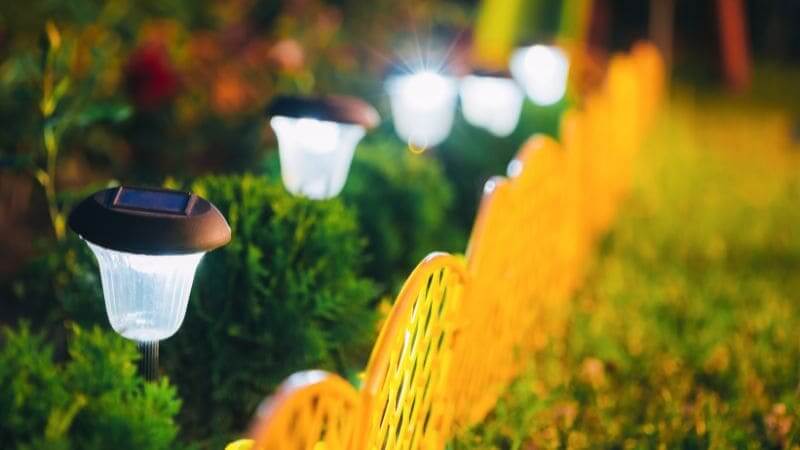
Interesting and Effective Methods for Cleaning Solar Lights
Sometimes, conventional cleaning methods may not be enough to restore your solar garden lights to their original brightness, especially if the lights are cloudy or oxidized. Luckily, there are several household items that can effectively clean and restore solar-powered lights. Here are some unique, eco-friendly methods you can use to clean your solar lights and keep them looking like new.
Using Vinegar
Vinegar is a natural and gentle cleaning agent that works well for cleaning both the solar panel and the plastic cover on solar lights. It’s a great alternative to harsh chemicals and is safe for most materials.
- Mix the Solution: Combine equal parts white vinegar and water in a spray bottle.
- Apply to the Solar Panel: Spray the solution onto the surface of the panel and the light cover.
- Cleanse with a Soft Cloth or Brush: Use a soft cloth to gently clean any dirt, stained, or oxidation that has built up.
- Rinse and Dry: After cleaning, rinse the lights with water and dry them with a soft cloth.
Nail Polish Remover
Nail polish remover (specifically acetone) can be used to restore yellowed or cloudy plastic covers on solar lights. However, it should be used sparingly, as too much can degrade the plastic over time.
- Apply a Small Amount: Dampen a cotton ball or cloth with a small amount of nail polish remover.
- Gently Rub the Plastic Cover: Rub the plastic cover lightly to remove oxidation and restore clarity.
- Rinse Immediately: Rinse the cover with water immediately after cleaning to prevent the acetone from damaging the plastic.
This method is highly effective for clearing up oxidized plastic but should be used cautiously.
Toothpaste
Toothpaste is another household item that works wonders on solar lights that have become cloudy or scratched. Its mild abrasive properties make it ideal for polishing surfaces and removing minor scratches.
- Apply Toothpaste: Apply a small amount of toothpaste to a damp cloth or directly onto the cloudy areas of the plastic cover.
- Use a soft toothbrush or cloth to rub the toothpaste into the surface, polishing away the cloudiness.
- Rinse and Dry: Rinse the area with clean water and dry it with a soft cloth.
Toothpaste is a quick and easy way to bring back the shine to your solar lights.
Orange Extract Cleaner
Orange extract cleaner is an eco-friendly option that works well for solar light cleaning. It’s safe to use on solar panels and plastic covers and provides an effective cleaning solution that won’t harm your garden.
- Spray the Cleaner: Apply the orange extract cleaner to the panel and plastic parts.
- Wipe with a Soft Cloth: Use a soft cloth or sponge to gently clean the surface.
- Rinse and Dry: After cleaning, rinse with water and dry with a soft cloth.
Orange extract cleaner is a natural alternative that’s gentle on materials and the environment, making it an excellent choice for maintaining solar lights.
These household solutions are effective, safe, and affordable ways to keep your solar lights clean and functioning at their best. They not only remove dirt but also help restore the plastic covers, ensuring your lights shine brightly in your garden.
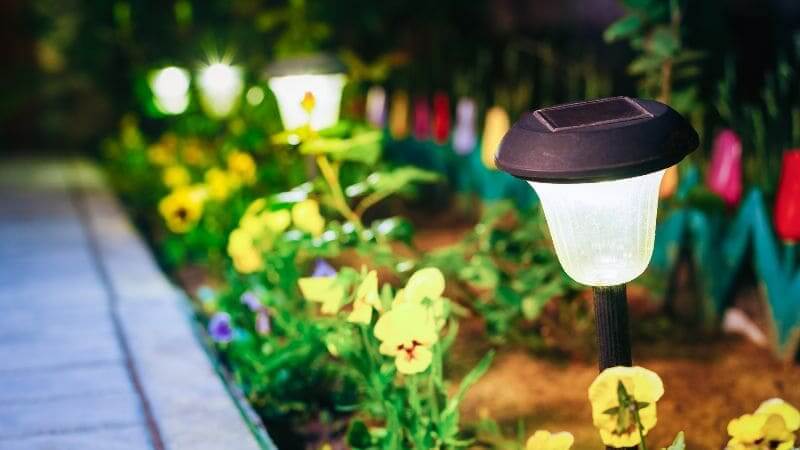
Regular Maintenance of Solar Panels and Lights After Cleaning
If you clean your solar lights or cleaning the panels once, maintenance is necessary to keep them running properly for a long time. Ensuring they do not get dirty and blocked up, while inspecting it for damages: this will keep them working as well as bright.
Remove Blockages
The sunlight is the source of power, so it should be checked often to make sure that no debris or other things are blocking its impact on solar plate. Obstructions like leaves, twigs and bird poop or dust can screen sunlight from the panel which will reduce how much of the suns power is stored in your battery.
As a weekly check
Check your solar-powered light at least once per week for any obstruction.
Clear Debris
Using a soft, mildly abrasive cloth or brush to rub away any dirt, leaves & twigs. Observe: Do not use sharp objects which may reduce or injury the solar panel.
Check the Batteries
Sola lights are all about the batteries. These batteries may well over time to wear out or be destroyed which will mess with the overall performance of your lights. Regular battery inspection and topping up will help you keep your lights bright but useless.
Change damaged batteries
Should you see that the old battery is corroded or perhaps doing quite recently, it would be ideal if you substitute for a completely new pack. Always use the kind of rechargeable batteries your lights specify.
Clean the battery compartment
If there is any dirt or corrosion in it, wipe with a dry cloth before inserting your new batteries. This promotes better contact of the terminals with the batteries hence more power transmission.

Solar Panels and Lights Cleaning- FAQs
Is it Workable to Use Glass Cleaner on Solar Lights?
As tempting as it might be to pull out some glass cleaner and a squeegee, that generally is not recommended for your solar panels or lights. There can also be a build up residue from glass cleaners that will cause sunlight to not make it threw the solar cells efficiently.
Instead, a solution of mild soapy water is safer and just as effective to remove the dirt but not leave behind any harmful residues. In some cases, glass cleaners can also break down the material of plastic components over time so it is better to use a milder form cleaner.
Is Using Rubbing Alcohol to Clean the Panel a Good Idea?
Rubbing alcohol can also be used effectively to clean panels on as needed basis, for example when it comes widest spot cleaning from the like of bird droppings and sap. It has a fast-evaporative nature which we recommend to avoid leaving streaks. Nevertheless, you have to water it down with the help of a little bit of H2O and use it very selectively.
Excessive rubbing alcohol can quickly break the protective coatings of a panel and even damage its surface, which is why it should be avoided. Rinse with clean water afterwards, do not skip this step to avoid any residue left behind.
How Can I Make My Solar Lights Clear?
It is easy to revive your solar lights when they become cloudy or have yellowed with wear and tear. How to Make Your Solar Lights Clear again? Here is a short guide for you:
Wash with a Mild Solution of Vinegar or Soap: Begin by washing the surface down using a mild vinegar solution. This will remove any external debris and grime that has been causing the cloudy look.
Just a Warning: cover the cloudy area with either toothpaste or plastic polish. Lightly massage the wet rag or toothbrush used to remove scratches to bring back bare scratched hair.
Clean It: After the light is polished, rinse it off with water and dry thoroughly to prevent water spots.
Apply a Top Coat: Think about putting on an additional clear coat to protect against ultraviolet radiation causing yellowing or cloudiness later.
Does Water Ruin Solar Lights?
Solar powered lights are generally water-resistant, especially when it comes to outdoor use. Many solar yard lights waterproof, you needn’t worry about using it in rain and mist weather. Although, take care when you clean them since blasting the nooks and crannies with high-pressure water could drive in moisture into seams or joints it shouldn’t be there; putting at risk the integrity of wiring or battery compartments.
In case the water enters into your lights make sure that they are completely dried. If the light doesn’t work after rain, it could mean there’s water damage inside that needs to be disassembled and dried.
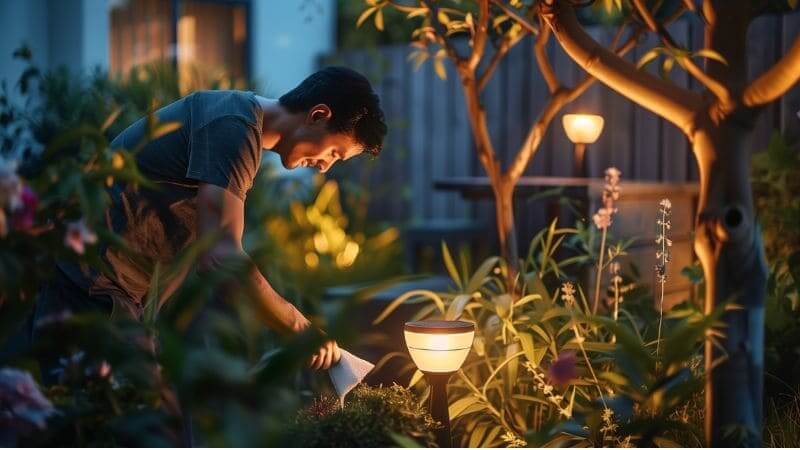
Conclusion
Maintaining solar lights through regular cleaning ensures they capture maximum sunlight and remain efficient. By following these simple steps, you can extend the life and performance of your solar-powered garden lights. Keep your panels clean, check for blockages, and ensure the batteries are functioning well for optimal performance.

